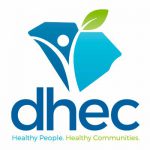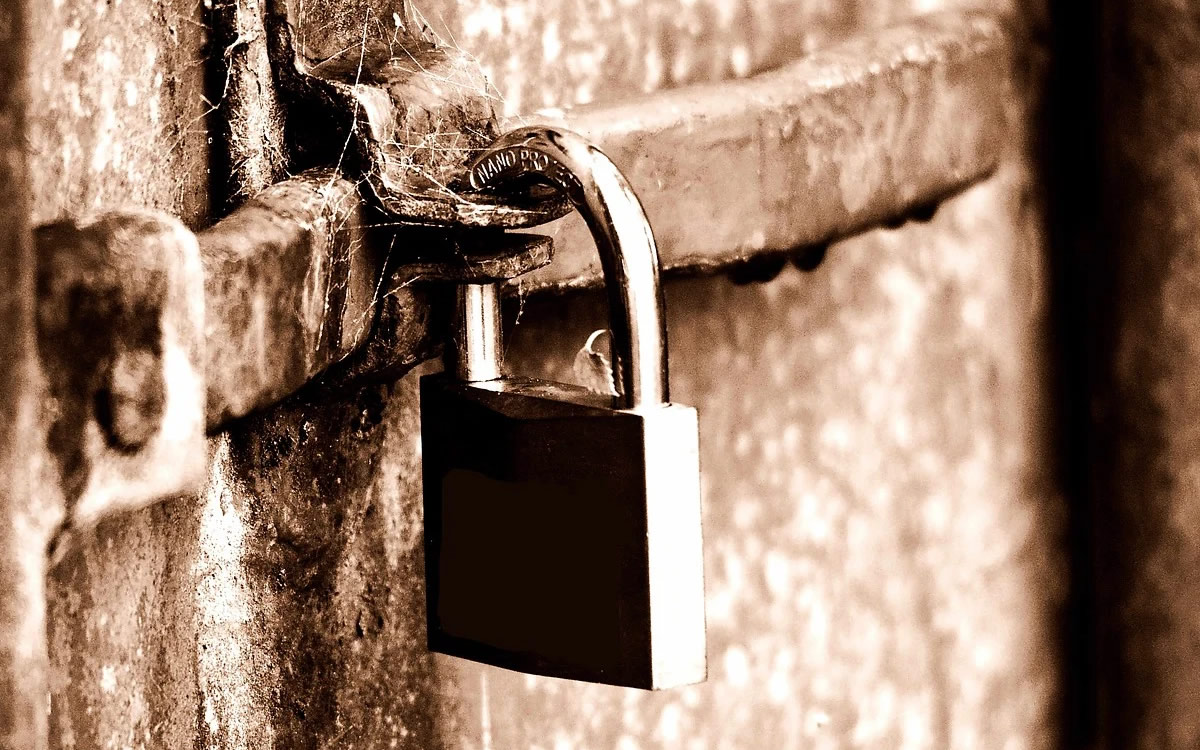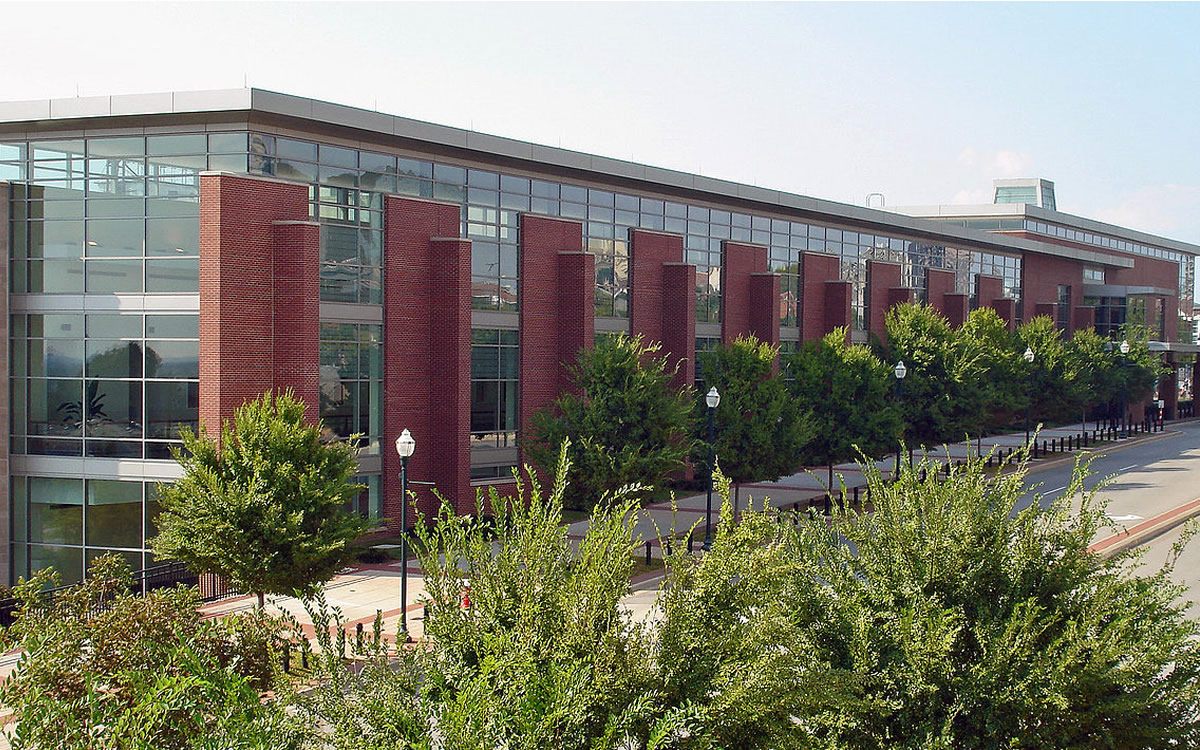INSIDE ISSUE 19.19 | May 8, 2020
 BIG STORY: ‘Overwhelmed’ public health agency gets praise, criticism
BIG STORY: ‘Overwhelmed’ public health agency gets praise, criticism
NEWS BRIEFS: S.C.’s revenues continue to dwindle, new assessment shows
COMMENTARY, Brack: State needs temporary rules now for more absentee voting
SPOTLIGHT: S.C. Senate Democratic Caucus
FEEDBACK: What have you got to say?
MYSTERY PHOTO: Lots of glass
S.C. ENCYCLOPEDIA: Havilah Babcock
‘Overwhelmed’ public health agency gets praise, criticism

By Lindsay Street, Statehouse correspondent | The state health agency leading the pandemic response has earned bipartisan praise from state lawmakers. But some also criticize it as being too weak, ineffective and slow during the pandemic of the century.
“You can always point fingers but DHEC (the S.C. Department of Health and Environmental Control) really forged ahead and took control of what they were supposed to do,” said Beaufort Republican Rep. Bill Herbkersman, who chairs the budget-writing subcommittee on health expenses in the state.
But whether DHEC also may be viewed as gutted, understaffed and left ill-prepared by past leaders for an epidemic or other emergency appears to be a matter of political ideology. While many lawmakers have praised the staff at DHEC, Democrats say they are concerned the agency has been weakened under Republican leadership.

“You have some incredibly hardworking people at DHEC, who were overwhelmed, understaffed,” said Camden Democratic Sen. Vincent Sheheen, whose district experienced the first hotspot of the virus in South Carolina.
Regardless, many lawmakers agreed that DHEC will need more money going forward.
This week, after two months of coronavirus statistical updates, the agency announced it would expand testing and contact tracing as the state continues to see hundreds of new cases daily. Next week, lawmakers will evaluate further emergency funding as they meet for the first time since April 8.
‘The blame should be on us’
DHEC saw big changes from 2003 until 2016 under Republican governors Mark Sanford and Nikki Haley. The agency lost 20 percent of its workforce and, since 1998, has gone from an annual budget of $169 million to $107 million, according to an April 19 report from The Post and Courier. Some of the biggest cuts came during the Great Recession.
That decrease has come as the state’s population has increased from 3.84 million to 5.15 million, according to the U.S. Census Bureau.

North Charleston Democratic Rep. Wendell Gilliard described the agency as chronically short-staffed and underfunded. He said while testing supplies were a nationwide issue, the state agency struggled with responding to public needs.
“When this situation took place, it just added insult to injury,” he said. “They weren’t ready for this and we, as lawmakers, did not help prepare them for this. The blame should be on us.”
But, Sheheen said, Republican Gov. Henry McMaster and leadership in the General Assembly have worked to bring back adequate levels of funding since 2017.
“For 12-plus years, these agencies were brought to the brink of dysfunction,” Sheheen said. “We’re reaping what we sowed … Now, with the economic downturn, it’s going to be even harder to bring it back.”
State revenues are expected to get a massive hit from public health measures taken by the state, local governments and citizens trying to prevent overwhelming hospital capacity. So far, the state has avoided crushing hospitals’ abilities to treat patients. As of May 4, all regions in the state reported fewer than 70 percent of hospital beds were being used.
The current situation
During the pandemic, DHEC has provided daily news releases and web updates, along with data sets, including demographic data, on coronavirus cases. Legislators said the agency has provided them regular updates, too.
“They have certainly maintained lines of communication,” said Orangeburg Democratic Sen. Brad Hutto, who sits on the Senate’s Medical Affairs Committee.
In March, state legislators injected $45 million into the agency amid the coronavirus pandemic. More money could be on the way, at the governor’s discretion, once the House and Senate convene next week to pass a continuing resolution that will keep state government operating at 2019-2020 levels and also slate about $165 million from last year’s budget surplus for responding to the pandemic.
South Carolina has experienced six deaths per 100,000 as of May 7, which is among the lowest rates in the nation. But that number could be misleading since many experts say not all coronavirus-related deaths are being counted amid limited testing.
And South Carolina is among the states testing the least. According to NPR, the state averages 3,324 tests per day, but needs a minimum of 8,846 tests by May 15 to help curb and track the virus. Since testing began, 73,442 tests have been conducted in the state as of May 7, most of which have occurred at private labs.
Moving forward
The increased testing announced this week will include more than 40,000 tests for all nursing home staff members and patients by the end of May, the agency said.
 DHEC media liaison Laura Renwick said the state is also ready to do more contact tracing moving forward. During normal operations, DHEC has about 20 contact tracers on staff to follow the spread of diseases such as tuberculosis or hepatitis. By May 1, the number of contact tracers swelled to 230 who are able to investigate up to 3,450 contacts per day, according to Renwick.
DHEC media liaison Laura Renwick said the state is also ready to do more contact tracing moving forward. During normal operations, DHEC has about 20 contact tracers on staff to follow the spread of diseases such as tuberculosis or hepatitis. By May 1, the number of contact tracers swelled to 230 who are able to investigate up to 3,450 contacts per day, according to Renwick.
“We have capacity to do even more as we scale up our number of contact tracers in anticipation of increased testing availability,” she said.
Christian Soura, the S.C. Hospital Association’s vice president of policy and finance, said his organization expects up to 1,000 DHEC contact tracers by June 1.
“That expansion will do a lot to help us limit the spread,” Soura said, adding that he looks forward to a coordinated response with hospitals to help maximize testing efficiency. Soura formerly directed the state’s Medicaid agency, S.C. Department of Health and Human Services.
Stockpiling eyed for future
There is little doubt among legislators that DHEC was caught unprepared. In its Jan. 22 presentation to the House Ways and Means Committee, there is no mention of pandemic or the coronavirus. The United States had its first confirmed case two days earlier on Jan. 20.
“In all fairness, nobody anywhere in the country, let alone in South Carolina, was ready for what has taken place with COVID-19 situation. In other words, we were caught off guard,” said Gilliard, who sounded the alarm bell as early as Jan. 31 to McMaster and the legislature.
For Townville Republican Rep. Jonathon Hill, who serves as second vice chair on the House’s Medical, Military and Public Municipal Affairs Committee, any hiccups in response so far are related to an inability to predict the future.
“If we could have anticipated this could have happened, we would have been more prepared,” he said.
Democratic lawmakers say they want to see better stockpiling and further staffing improvements.
“(DHEC was) really at the mercy of the federal government for supplies because the state hadn’t done any stockpiling,” Sheheen said.
Lexington Republican Sen. Katrina Shealy said she will be a part of lawmakers recommending legislation following the pandemic, and that stockpiling is a top priority to address. Hill agreed.
- Have a comment? Send to: feedback@statehousereport.com
S.C.’s revenues continue to dwindle, new assessment shows

By Lindsay Street, Statehouse correspondent | The state’s general fund revenues declined $400.1 million for April compared with the same time frame in 2019, according to a Friday state revenue presentation.
But it’s possible that money will be made up as taxes are filed later, state Revenue and Fiscal Affairs Executive Director Frank Rainwater told the Board of Economic Advisers Friday morning.
In the teleconference call, the board only saw a slight downward revision to the 2020-2021 revenue forecast that will guide lawmakers’ budget writing. Last month, the board lowered revenue estimates by $643.5 million. Now, an additional $58.3 million is expected to be lost from corporate income tax and corporate license tax, leaving lawmakers with about $9.5 billion to spend in 2020-2021 — and possibly only $60 million in surplus funds from the 2019-2020 fiscal year.
Since March, lawmakers and economists have faced the reality that the state’s consecutive years of record surpluses have ended, and that the House-approved budget that included millions for teacher pay raises no longer would reflect future revenues, which were projected in February to be $10.25 billion. The 2019-2020 fiscal year was originally projected to see a $567 million surplus.
The next meeting of the BEA is slated for June 11 to give an economic and revenue update.
Here’s the General Assembly’s schedule for next week, as of May 8:
- The COVID-19 Small Business Regulatory Relief Committee will convene 2 p.m. May 11 via Zoom. See the agenda here.
- The House will meet at noon May 12. Here is the House’s calendar.
- The Senate will meet at 2 p.m. May 12. Here is the Senate’s calendar.
In other news:
![]() State employee association seeks hazard pay for essential staff. The association representing state employees this week asked Gov. Henry McMaster and the General Assembly to consider hazard pay for essential public employees. S.C. State Employees Association Executive Director Carlton Washington said in a May 6 letter that some staff have been infected by the coronavirus and all front line employees “deserve” financial compensation, in addition to free testing, personal protection equipment and gratitude. He said he wanted members of the legislature to include hazard pay in the legislative discussions May 12 to May 15 for “all employees who are required to work and interact with the public in some fashion.”
State employee association seeks hazard pay for essential staff. The association representing state employees this week asked Gov. Henry McMaster and the General Assembly to consider hazard pay for essential public employees. S.C. State Employees Association Executive Director Carlton Washington said in a May 6 letter that some staff have been infected by the coronavirus and all front line employees “deserve” financial compensation, in addition to free testing, personal protection equipment and gratitude. He said he wanted members of the legislature to include hazard pay in the legislative discussions May 12 to May 15 for “all employees who are required to work and interact with the public in some fashion.”
Housing during pandemic to be discussed May 14. The S.C. Appleseed Legal Justice Center will discuss how federal CARES Act funding can be used to address housing issues during the pandemic and other updates to coronavirus relief 2 p.m. May 14 online. Register for the forum here.
State Supreme Court says no bias proved in ethics judgment. Special prosecutor David Pascoe sought to overturn a plea deal by former state lawmaker Richard Quinn in a seven-year ethics investigation, claiming bias from a judge. But the state Supreme Court said this week the guilty plea remained in place. Read more.
88 lawmakers sign on to stop abortion-provider Medicaid funding. Eighty-eight Republican state lawmakers signed an amicus brief to the U.S. Supreme Court this week asking it to allow Gov. Henry McMaster to withhold Medicaid reimbursements to abortion-providers for non-abortion services. Read more.
‘Voices of Resilience’ in print. Statehouse Report’s April 24 story on looking to those hardest hit by the pandemic and its economic fallout for how to rebuild has been republished in the Charleston City Paper as its May 6 cover story. Click here to see the story adapted to print.
Heard about the ‘murder hornets’? Why you shouldn’t worry. A pandemic, huge job losses, and now, there’s hornets out to murder people. Except, that last part is an exaggeration. (And can a hornet actually murder a person? Last time we checked, murder requires a specific legal definition that does not apply to insects.) Read here why we shouldn’t be worrying too much about the Asian giant hornet grabbing headlines.
Call made to decriminalize marijuana. This week’s editorial in the Charleston City Paper talks about why South Carolina shouldn’t give up on decriminalizing marijuana. Read it here.
What to watch nationally:
Food stamp battle brewing. With an unprecedented rise in food insecurity around the country, access to federal food aid through the Supplemental Nutrition Assistance Program has continued to be a partisan battle. Read more.
Trump eyes dismantling the Affordable Care Act. President Trump pledged on Wednesday to “terminate” the Affordable Care Act which could dramatically impact the health insurance of millions of Americans. Read more.
- Have a comment? Send to: feedback@statehousereport.com
Friends and readers,
 We’re proud to offer Statehouse Report for free. For more than a dozen years, we’ve been the go-to place for insightful independent policy and political news and views in the Palmetto State. And we love it as much as you do.
We’re proud to offer Statehouse Report for free. For more than a dozen years, we’ve been the go-to place for insightful independent policy and political news and views in the Palmetto State. And we love it as much as you do.
But now, we can use your help. If you’ve been thinking of contributing to Statehouse Report over the years, now would be a great time to contribute as we deal with the crisis. In advance, thank you.
— Andy Brack, editor and publisher
BRACK: State needs temporary rules now for absentee voting

By Andy Brack, editor and publisher | In these pandemic times, the state doesn’t want large groups of people to congregate. Yet it hasn’t expanded rules to allow people who want to shelter in place to vote by absentee ballot on June 9.
 This makes absolutely no sense for anyone who has stood in long lines on election day, particularly now that there are more barriers to voting with identification requirements and new electronic machines still unfamiliar to many voters. More absentee voting would limit human contact — and potentially thwart the spread of coronavirus.
This makes absolutely no sense for anyone who has stood in long lines on election day, particularly now that there are more barriers to voting with identification requirements and new electronic machines still unfamiliar to many voters. More absentee voting would limit human contact — and potentially thwart the spread of coronavirus.
“The Republicans that control our government have a moral responsibility to protect our citizens and a constitutional responsibility to make sure our democracy doesn’t falter,” S.C. Democratic Party Chairman Trav Robertson said in a recent statement. “Our people demand that they take action and eliminate the qualifications for absentee voting and transition to a mail-in voting program.”
State Democrats and ACLU were right to file lawsuits challenging South Carolina’s old-fashioned way of doing elections — by making all but a subset of voters show up at a polling place. We already know mail-in balloting works. So let’s expand it.
Officials point to all sorts of exceptions that allow people to vote by mail. If you’re in the military or American Red Cross, you can vote absentee. If you’re overseas, disabled, a student living outside your home county, have a work conflict, on vacation, in the hospital, at a funeral, in jail, helping someone who is sick or disabled — all of you can vote absentee. So can anyone working the polls or who is 65 or older.
Quite frankly, anyone who wants to vote by mail could probably slide by in the pandemic claiming they have a work conflict. But that’s not really truthful.
But if more people actually do vote by mail, state officials are going to need more time to process ballots to make sure everyone’s vote is counted.
State lawmakers need to do two things next week to fix the whole mess. First, they need to pass emergency, temporary measures to allow more people to vote absentee during the June primary, any runoffs and in November in the general election. This will protect the integrity of the voting system — and protect public health — as we continue to grapple with the pandemic.
Second, they need to extend emergency measures to allow election officials to start processing ballots completed before election day to give them more time to do their counts, particularly if the mail-in system faces being overwhelmed in June. Even better: Also extend the time to certify elections from two days after the election to 30 days after the election to make sure everyone’s vote is counted.
But there’s more that lawmakers could do: They could get a jumpstart on modernizing how we conduct elections with this snazzy new thing called the Internet. If we can buy anything from groceries to a car through secure credit card transactions, we certainly can create a safe way to vote online. Nearing the age of receiving Social Security? You interact with the agency online. File taxes? You send a lot of personal information over the Internet. Come on, South Carolina. Get it together.
For a state with a rich maritime history, South Carolina is seriously missing the boat on voting absentee. It’s off the rails in two other ways too, both of which could be fixed during the three days lawmakers meet this month:
Close the gun loophole. The murder of nine people at Emanuel AME Church in Charleston that shocked the nation occured almost five years ago. And still, lawmakers haven’t finished the job of strengthening gun background checks to keep weapons out of the hands of people who shouldn’t have them, such as the shooter in Charleston. Finish the job this month.
Approve medical marijuana. More than 30 states have decriminalized marijuana in some fashion. While South Carolina isn’t likely anytime soon to decriminalize fully, it should approve a medical marijuana proposal that will help those suffering from ailments have more relief. The measure, championed by S.C. Sen. Tom Davis, R-Beaufort, and others, likely would have passed this session had it not been cut short by the pandemic. Finish the job.
- Have a comment? Send to: feedback@statehousereport.com.
S.C. Senate Democratic Caucus
 The public spiritedness of our underwriters allows us to bring Statehouse Report to you at no cost. This week’s spotlighted underwriter is the S.C. Senate Democratic Caucus. Organized almost 25 years ago, the Caucus has played an important role in many of the historic issues facing our state. As a vibrant minority party in the Senate, its role is to represent our constituents and present viable alternatives on critical issues. The S.C. Senate Democratic Caucus remains a unique place for this to occur in our policy process.
The public spiritedness of our underwriters allows us to bring Statehouse Report to you at no cost. This week’s spotlighted underwriter is the S.C. Senate Democratic Caucus. Organized almost 25 years ago, the Caucus has played an important role in many of the historic issues facing our state. As a vibrant minority party in the Senate, its role is to represent our constituents and present viable alternatives on critical issues. The S.C. Senate Democratic Caucus remains a unique place for this to occur in our policy process.
- Learn more about the Caucus at: www.scsenatedems.org.
What do you think?
We love hearing from our readers and encourage you to share your opinions. But you’ve got to provide us with contact information so we can verify your letters. Letters to the editor are published weekly. We reserve the right to edit for length and clarity. Comments are limited to 250 words or less. Please include your name and contact information.
- Send your letters or comments to: feedback@statehousereport.com
Lots of glass

This should be an easy mystery for many. Send your best guess of what it is to feedback@statehousereport.com. And don’t forget to include your name and the town in which you live.
Our previous Mystery Photo
 Our May 1 image, “Pretty white church,” showed Grace Episcopal Chapel in the Charleston County fishing village of Rockville. But only three veteran sleuths correctly identified it. Hats off to George Graf of Palmyra, Va.; Jay Altman of Columbia; and Bill Segars of Hartsville.
Our May 1 image, “Pretty white church,” showed Grace Episcopal Chapel in the Charleston County fishing village of Rockville. But only three veteran sleuths correctly identified it. Hats off to George Graf of Palmyra, Va.; Jay Altman of Columbia; and Bill Segars of Hartsville.
Segars provided more context: “It was built in 1840 as a St. John’s Parish Chapel of Ease to serve the Wadmalaw families. This Greek Revival building was originally built on property behind the W.E. Jenkins House for a cost of $1,500. Due to uncertainty of the land title on which the chapel sat, in 1884, it was rolled to its current location on palmetto logs. After the hurricane of 1893, Clara Barton, the founder of the American Red Cross, held a relief meeting here. Additions in 1890 and 1900 give the building its current appearance.
“The altar’s stained glass window is a signed Tiffany window depicting Christ walking on water, given in memory of Reverend and Mrs. Joseph LaRoche. There is a match to this window in the church at the U.S. Naval Academy in Annapolis, Maryland.”
Send us a mystery: If you have a photo that you believe will stump readers, send it along (but make sure to tell us what it is because it may stump us too!) Send to: feedback@statehousereport.com and mark it as a photo submission. Thanks.
Havilah Babcock
Educator and writer Havilah Babcock was born on March 6, 1898, in Appomattox, Virginia, the son of Homer Curtis Babcock and Rosa Blanche Moore. He earned an A.B. from Elon College in 1918, then pursued graduate studies at Columbia University, the University of Virginia (A.M., 1923), and the University of South Carolina (Ph.D., 1927). On June 3, 1919, he married Alice Hudson Cheatham. He briefly taught high school English in Virginia before joining the faculty at the College of William and Mary in 1921. In 1926 Babcock came to the University of South Carolina (USC) on a year’s sabbatical leave. He found the people, school, and state so hospitable that he stayed thirty-eight years, joining the English department and becoming a fixture at the university.
 At USC, Babcock was an institution about whom truths and legends were freely circulated. He might begin a class with “I’ll give twenty-five cents to anyone who can spell Houyhnhnm,” and reportedly he greeted students with a broadside of snowballs after a rare southern snowfall. His jovial bond with students made his courses the most sought after at the university, causing students to sign up a year in advance for his English 129 course entitled “I Want a Word.” In this vocabulary and semantics course, students learned of the charm and power of words as they listened to Babcock reveal their nuances and connotations.
At USC, Babcock was an institution about whom truths and legends were freely circulated. He might begin a class with “I’ll give twenty-five cents to anyone who can spell Houyhnhnm,” and reportedly he greeted students with a broadside of snowballs after a rare southern snowfall. His jovial bond with students made his courses the most sought after at the university, causing students to sign up a year in advance for his English 129 course entitled “I Want a Word.” In this vocabulary and semantics course, students learned of the charm and power of words as they listened to Babcock reveal their nuances and connotations.
Babcock was equally at home in the field as at the blackboard. He used the outdoors as a canvas to draw a vast array of colorful characters, becoming a master of the hunting-fishing tale. His stories were replete with references to English and American literature. More than one hundred of his stories found their way into print in a variety of newspapers and magazines, including Field and Stream. Anthologies of his works include My Health Is Better in November (1947), Tales of Quails ’n’ Such (1951), I Don’t Want to Shoot an Elephant (1958), and Jaybirds Go to Hell on Friday, and Other Stories (1964). His writing traveled the literary spectrum with ease. In his novel The Education of Pretty Boy (1960), Babcock wrote of a young boy’s gun-shy bird dog because he thought the dog “was too pretty not to be immortal.”
Babcock’s writings continued their popularity years after his death. A reviewer from the New York Times once compared his writing to “a rare old Bourbon you want to make last as long as possible.” A counterpart at Field and Stream applied a similar metaphor: “Like a good wine,” Babcock’s stories “grow better with age.” Babcock died in Columbia on December 10, 1964, and was buried in Appomattox, Virginia.
— Excerpted from an entry by Francis Neuffer. This entry may not have been updated since 2006. To read more about this or 2,000 other entries about South Carolina, check out The South Carolina Encyclopedia, published in 2006 by USC Press. (Information used by permission.)
ABOUT STATEHOUSE REPORT
Statehouse Report, founded in 2001 as a weekly legislative forecast that informs readers about what is going to happen in South Carolina politics and policy, is provided to you at no charge every Friday.
Meet our team
- Editor and publisher: Andy Brack, 843.670.3996
- Statehouse correspondent: Lindsay Street
Buy the book
Now you can get a copy of editor and publisher Andy Brack’s We Can Do Better, South Carolina! ($14.99) as a paperback or as a Kindle book ($7.99). . The book of essays offers incisive commentaries by editor and publisher Andy Brack on the American South, the common good, vexing problems for the Palmetto State and interesting South Carolina leaders.
More
- Mailing address: Send inquiries by mail to: 1316 Rutledge Ave., Charleston, SC 29403
- Subscriptions are free: Click to subscribe.
- We hope you’ll keep receiving the great news and information from Statehouse Report, but if you need to unsubscribe, go to the bottom of the weekly email issue and follow the instructions.
- © 2020, Statehouse Report, a publication of City Paper Publishing, LLC. All rights reserved.
- Read our sister publications: Charleston City Paper (every Wednesday) | Charleston Currents (every Monday)

